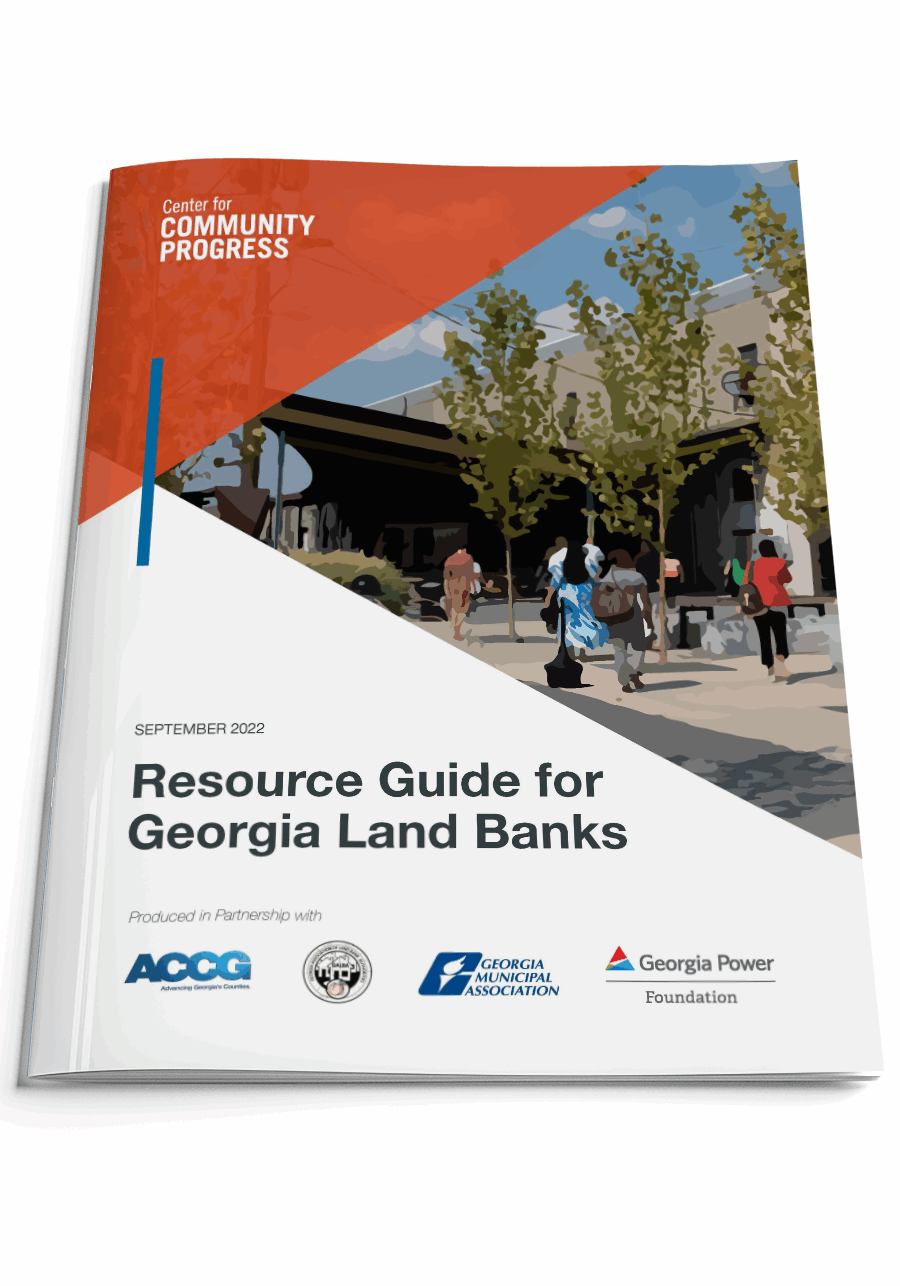Resource Guide for Georgia Land Banks
An A-to-Z Toolkit of Sample Documents
Topic(s): Land Banks, State & Local Analysis
Published: September 2022
Geography: Georgia
Author(s): Sara Toering, Esq. and Allie Jett, Esq.
The 2022 Resource Guide for Georgia Land Banks is designed to provide new and updated documents for land bank leaders as their operations mature and become more complex. The 2013 manual templates and example documents have proven to be essential tools for community leaders seeking to create land banks under the 2012 Georgia Land Bank Act. In the decade since its publication, however, Georgia land banks and their partners have developed a variety of additional forms and documents that reflect updated best practices for Georgia land bank operations and programming. The 2013 manual remains useful for templates utilized in the creation of a land bank (i.e., intergovernmental agreements and board policies).
The templates and examples offered here reflect and anticipate a new generation of land banking and land bank programming in Georgia—whereby land banks, in partnership with community stakeholders, take a central, leading role in equitable development and state and local land and housing policy.
Section A is focused on land bank organization and governance and includes example forms and documents that may be considered soon after a land bank is created by local county and city (or consolidated) governments. These documents include frequently asked questions, board meeting agenda, bylaws, land acquisition, maintenance, and disposition policies, and a land bank budget template.
Section B includes example documents focused on land bank property acquisition and disposition. The application form, or a version of it, may be utilized for prospective land bank property buyers or other transferees, and the donation agreement may be considered by land banks that want to acquire donated properties. This section also includes a variety of example board resolutions, including those for the extinguishment of local government or school district taxes and the general conveyance of property, documents on the basic transfers of inventory property, including a purchase and sale agreement, a quit claim deed, and an option agreement that allows a land bank to take back ownership of property if buyers do not meet agreed upon conditions. Section B also contains a list of potential data points for land banks to consider tracking.
Section C provides examples and highlights innovative uses of the land bank tool currently underway by Georgia land banks, each of which can be replicated and augmented by any additional Georgia land bank.

Topic(s): Land Banks, State & Local Analysis
Published: September 2022
Geography: Georgia
Related Publications
Other Related Content
Subscribe to join 14,000 community development leaders getting the latest resources from top experts on vacant property revitalization.
